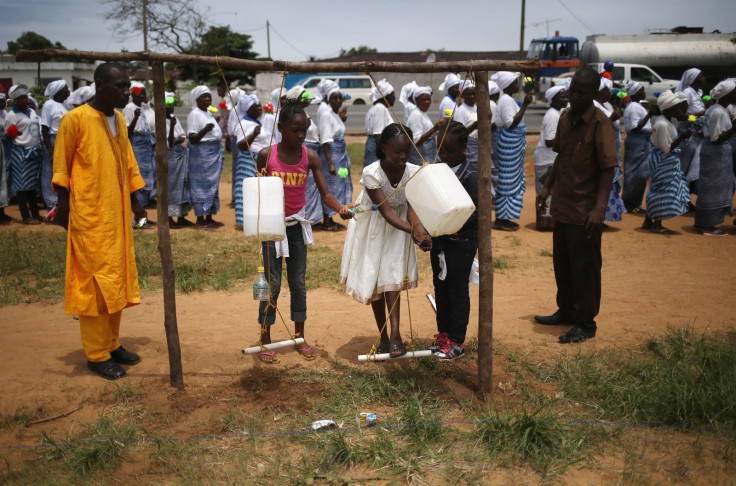Ebola Outbreak: Women on 'Frontline of Crisis' Disproportionately Infected as Disease Spreads

The number of women infected by the Ebola pandemic spreading across West Africa is surpassing the number of men, as the death toll rises above 1,000 in Guinea, Liberia, Nigeria and Sierra Leone.
Women are becoming disproportionately infected by the disease as they traditionally assume the roles of nurses, cleaners and laundry workers in hospitals across the countries affected by the outbreak, where there is increased risk of infection.
According to Unicef, women make up between 55% to 60% of the deceased in the current outbreak.
Julia Duncan-Cassell, Liberia's minister for gender and development, said health teams at a meeting in Liberia reported that 75% of those infected by Ebola or had died of the disease were women.
Outbreaks are understood to originate through the handling of infected animals, such as chimpanzees, gorillas, monkeys and fruit bats, frequently making men who hunt for bushmeat or come into contact with the meat the first targets of infection.
Ebola is transmitted through the blood, secretions, organs or other bodily fluids of infected patients.
Speaking to the Washington Post, Sia Nyama Koroma, the first lady of Sierra Leone, said: "Women constitute a large section of the health workers and are on the frontlines of this crisis."
"Women are the caregivers — if a kid is sick, they say, 'Go to your mom,' " she said. "The cross-border trade women go to Guinea and Sierra Leone for the weekly markets, and they are also the caregivers. Most of the time when there is a death in the family, it's the woman who prepares the funeral, usually an aunt or older female relative."
The scientist who helped discover the Ebola virus in 1976, Professor Peter Piot, said that the team found that the pathogen was being spread through the reuse of infected needles on pregnant women, as well as through the funeral process.
"Someone who dies is washed, the body is laid out but you do this with bare hands," he told AFP. "Someone who died from Ebola, that person is covered with virus because of vomitus, diarrhea, blood," Piot explained, adding this had led to the rapid spread of the most recent outbreak.
According to the World Health Organization, pregnant women and the spread of the virus in a maternity setting led to two of the three largest outbreaks of Ebola, due to an increased contact with health workers and services.
Health experts have called for an increased understanding of the role gender plays in the spread of the virus, to improve intervention strategies and communication over Ebola. Currently, the Liberian government is providing training for women's groups on how to protect themselves from the virus.
So far, 1,069 people have died and the medical charity Medecins Sans Frontieres has said that the outbreak will take at least six months to bring under control.
"By reaching the women, they are reaching those who can best protect their families, and their own health," Maricel Seeger, a WHO spokeswoman in Monrovia, Liberia, told the Washington Post.
© Copyright IBTimes 2025. All rights reserved.






















